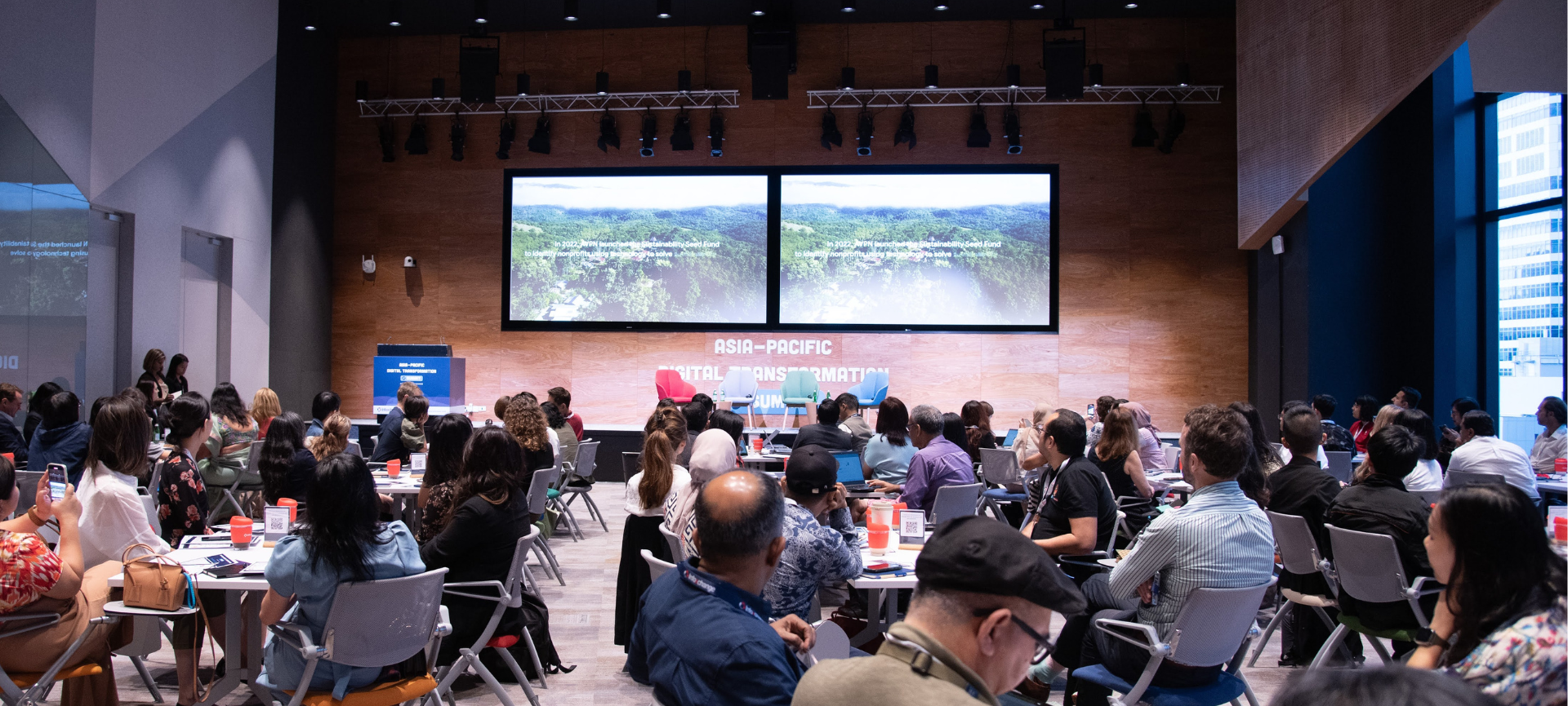
A Year of Digital Transformation in the Asia-Pacific Region: What We Learned
Here's how 47 organisations accelerated their impact.
In 2023, Infoxchange launched the Asia-Pacific NGO Digital Transformation Project with support from Google.org, Google’s philanthropic arm, and the Asian Development Bank.
The project was designed to increase the digital capability and skills of not-for-profits in the Asia-Pacific region and create a more resilient social impact sector. These not-for-profits work to make society stronger, more inclusive, equitable and sustainable. Strong digital capabilities are critical for them to creating sustained impact.
The program started with surveying not-for-profits in the region, Infoxchange reported the Asia-Pacific NGO Digital Capability Report. The report explored the digital capabilities, challenges and opportunities facing organisations across the region.
More than 1,500 organisations were surveyed across Australia, India, Indonesia, Japan, Malaysia, New Zealand, the Philippines, Singapore, South Korea, Taiwan, Thailand and Vietnam, providing a unique overview of the region’s digital capabilities.
The report found that only 50% of staff in organisations are confident in using technology to do their roles. Cyber security was a pressing and growing concern, with 1 in 6 organisations experiencing a cyber security incident in the past year. Only 44% had multi-factor authentication.
A majority of 53% expressed the need to improve their website, and 49% reported they want to make better use of digital marketing and social media as a priority. And nearly 40% saw cloud collaboration migration support as a priority. 1 in 3 wanted to prioritise learning how to improve data capture processes like using spreadsheets and forms for analysis.
This reported four key areas of digital capability:
- Not-for-profits cloud collaboration with a focus on selection, migration and support.
- Data capture and analysis to enhance service delivery and understand impact.
- Digital marketing techniques and skills to effectively connect with audiences, attract funding and drive support.
- Cyber security protections to ensure the safety of data and employees.
47 not-for-profits were then selected from across the region to undergo a digital transformation program determined by their individual need, and participate in an educational webinar program with leading experts in cyber security, data capture and analysis, cloud migration and digital marketing.
During the webinar program, more than 13,000 people from the region joined our weekly webinars. Webinars included topics such as getting started with data strategies, using spreadsheets like a pro for data analysis and visualisation, cyber security threats and trends, project management fundamentals and more. In 2023, generative AI had emerged as a powerful tool for not-for-profits to accelerate efficiencies and impact, and so webinar topics expanded to include topics such as AI opportunities, risks and benefits for not-for-profit, how to introduce ethical AI, and learning how to build your own custom AI assistant.
During the coaching program, we saw great strides from not-for-profits in finding ways to improve their efficiencies. For many organisations, moving data to the cloud dramatically assisted teams in reducing siloes and laborious manual processes, helping them be more strategic with making more evidence-based decisions.
For others, introducing multi-factor authentication enabled them to protect highly sensitive donor and beneficiary information, helping them better protect their organisation and supporters from potential cyber risks.
Others focused on digital marketing and communications plans, creating long-term, strategic roadmaps for bringing in new funding from donors both domestically and abroad. Here are some case studies of how the APAC Digital Transformation Program accelerated impact.
Alannah & Madeline Foundation
Infoxchange worked with the Alannah & Madeline Foundation, an organisation working to keep children safe online, to help guide their digital transformation strategy, with an ultimate goal of delivering one learning platform for all the foundation’s online safety programs.
During their early stages of growth, and prior to having a dedicated digital transformation strategy, the organisation had developed their digital education tools independently, resulting in different designs, cost inefficiencies and a greater administrative burden.
Data from each product would also sit separately, and the experience of children and teachers was limited to the product they were subscribed. This structure made it difficult to gain insights, as data wasn’t shared between education programs, and outcome analysis was different due to inconsistent datasets.
Due to the timebound nature of most not-for-profit funding, not-for-profits can fall into the trap of project siloed decision-making,. After a comprehensive evaluation of their existing digital service and products, and a process of getting organisational-wide stakeholder buy-in, the team at the Alannah & Madeline Foundation is now developing a universal educational learning portal that can be used across the organisation.
This will enable the Foundation to provide a unified user experience, facilitate easier data sharing across programs, enhance consistency, and avoid the duplication of effort, allowing the organisation to deliver impact more cost effectively and provide stronger visibility for learning outcomes.
“We needed to deliver a product that supports and engages both students and teachers, and help educators create engaging content that talks in their language. The educational learning portal will feature different types of pedagogy to deliver age appropriate resources that are play-based, such as short-form videos and gamified elements, which should vastly improve engagement as it will be more aligned with the teacher's preferred delivery model. Digital literacy is lacking in both students and teachers, so it was important that this portal, that’s since been co-designed with students, can be delivered in a school context that makes sense for students and teachers,” shared Alyshia Falla, Head of Digital at the Foundation.
TupuToa
TupuToa, an organisation in Aotearoa (New Zealand) working to grow the representation of Māori and Pacific young people in leadership positions, developed a data strategy that incorporated a whole-organisational approach to data stewardship, with the support of Infoxchange.
Often when staff left the organisation, their insights and data went along with them. Information and data sat in siloes, and staff struggled to stay motivated in their input of vital information that enabled the organisation to generate impact.
Infoxchange supported TupuToa to develop a data strategy that will guide TupuToa’s data storage, access and analytical capability. This will enable the business to forecast, to plan and make timely decisions. The team also developed an internal communications strategy to increase staff engagement with data.
This approach involved providing time and incentives to help educate staff on the new journey in utilising one ‘source of truth’, and help them transition into becoming data stewards to accelerate organisational impact.
“Power hours” became an opportunity for staff to ask any questions, such as how to clean data. Gift cards and “lunch on the boss” helped the team acknowledge the extra work needed to commit to upscaling their data capabilities, and boost motivation and encouragement along the journey.
TupuToa reminded their staff of the power of their data input, building their understanding their role in accelerating the impact of the organisation. This was clear when the data was converted into visual representations of impact via visualisation tools, allowing staff to see graphs of the number of lives they’ve helped, and how cleaning and inputting data is critical to the overall picture of Tupu Toa’s mission.
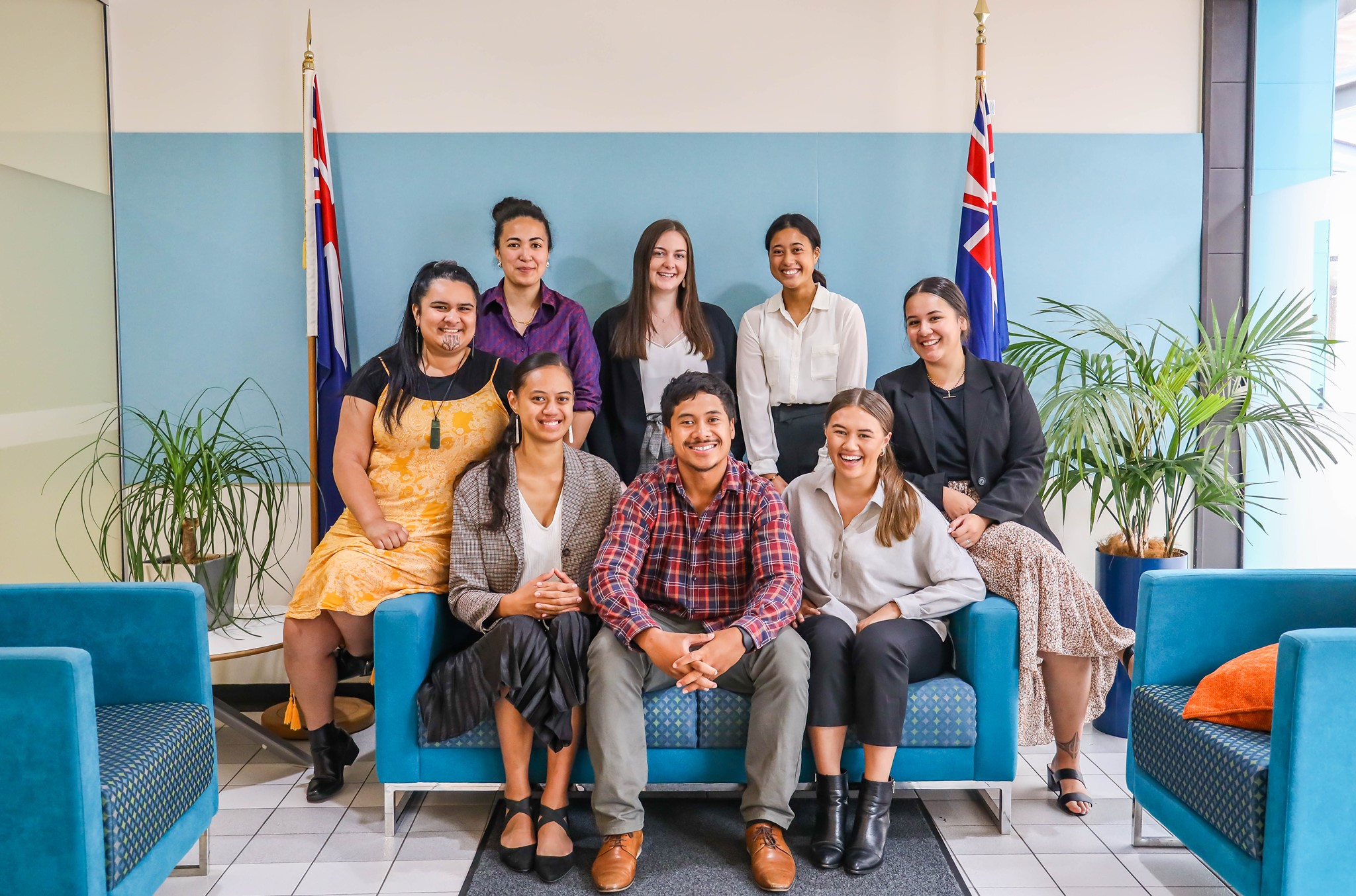
Singapore Association for the Deaf
Singapore Association for the Deaf, an organisation committed to providing support for deaf and hard-of-hearing community members, recently underwent a cyber security assessment program amidst rising cyber security concerns.
The Infoxchange team developed a roadmap to consolidate their cyber security capabilities to update outdated systems, improve policies and processes and prepare them for potential breaches. This involved ensuring only authorised users have access to systems, applications and data, implementing risk management and compliance processes to ensure information is managed and appropriately governed, and undergoing a “tabletop security exercise” – preparing them for a crisis via a simulation that examined opportunities for data breaches.
“Our process of digital transformation has highlighted the importance of prioritising data protection and security in today’s digital landscape. Organisations must stay vigilant and adapt their practices to evolving threats, technological changes and regulatory requirements,” shared Hock Sik, IT & Facilities Manager of the Singapore Association for the Deaf.
By embracing stronger cloud solutions, retiring outdated systems and implementing robust cybersecurity protocols and plans, the Association has managed its ability to mitigate the risk of financial loss, ensuring the continuity of its ability to generate impact.
Dreamdelion
Dreamdelion Indonesia has a vision of creating social change for local communities especially women and youth, via the values of connection, collaboration and impact. They deliver projects focused on economic empowerment, education and the environment.
The team’s goals are to grow their national presence and illustrate how their programs are in the direct interest of policymakers and government bodies. They needed a dedicated strategy to align to the needs of the governments and how their program aligns.
“We need to better communicate our portfolio of our social impact projects, bringing awareness to vulnerable communities and the economically challenged,” shared Aryo Dwi Harprayudi, Chairman of Dreamdelion.
“Additionally, we want to be able to open new fundraising channels, reaching out to international donors like Asisi Aid Projects and DFAT. To do this, we need to illustrate how these programs are in the direct interest of their objectives, and our impact data can help us do this.”
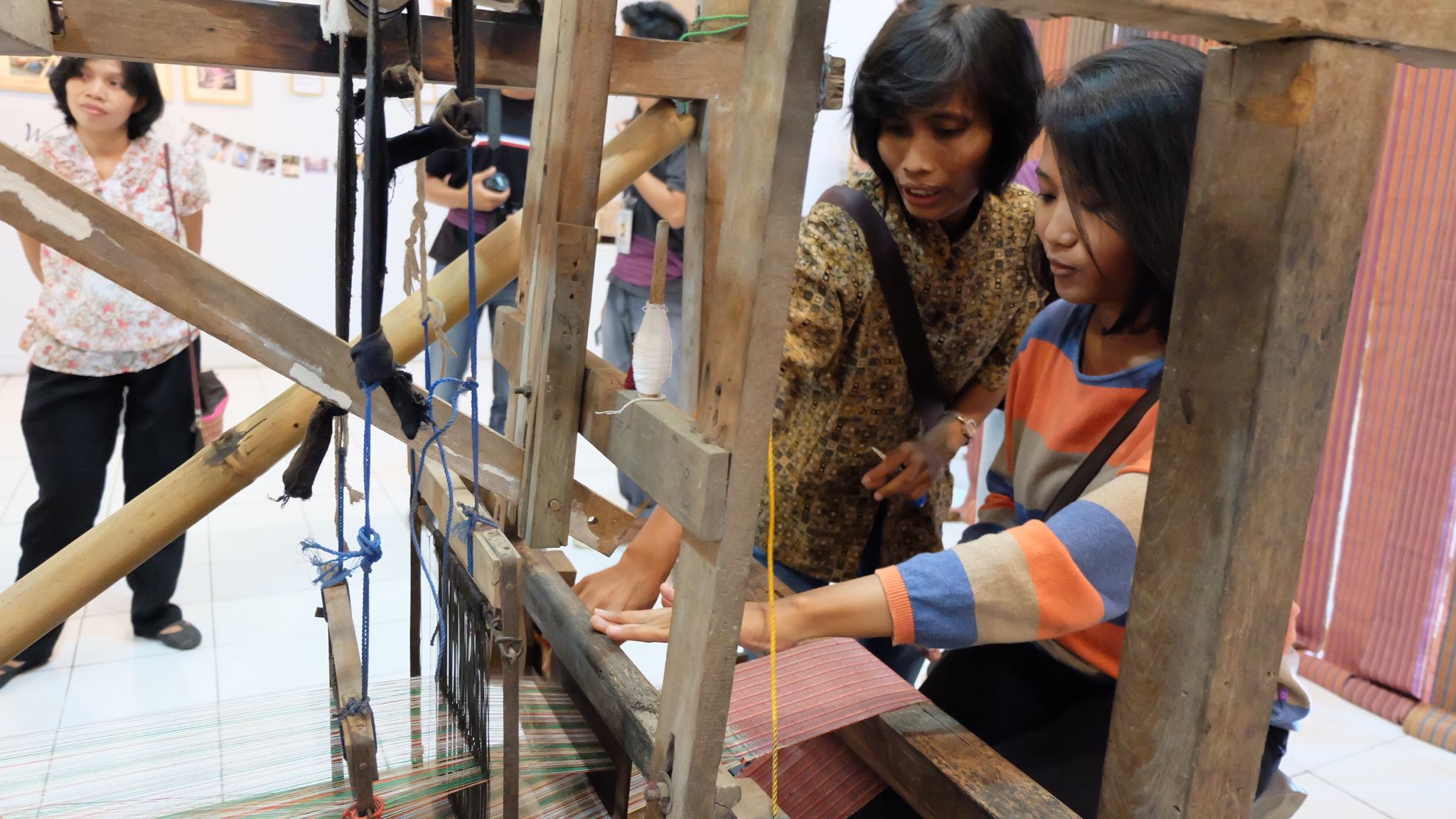
The team also wanted to open communication channels with a younger demographic, to inspire them to participate in the program. This meant creating strong communications strategies that focus on communicating to students and teachers, to better market the programs to engage students.
Another new channel included grassroots enterprises, and sharing with these enterprises how supporting Dreamdelion helps them build on their own social purpose. By developing a communications strategy that utilises their impact data to communicate their impact, the team at Dreamdelion has a clearer roadmap for becoming connectors between communities that want to create impact, and the beneficiaries who need support.
CyberPeace Foundation
CyberPeace Foundation runs a community group and a cyber volunteers network called CyberPeace Corps, It aims to achieve over nine million members from over 100 countries in the next 3 years collaborating to raise awareness and prevention of cyber crime and other Tech based abuses. Through their global program, CyberPeace Corps, community members from all walks of life step up to either act as first responders, reporting cyber crime they witness, or help educate vulnerable communities on how to better protect themselves.
Over the next few years, they aim to engage more than 9 million volunteers. With almost one billion people becoming digitally connected in India, the India headquartered Global Non profit is ramping up its community program. CyberPeace also has offices in the US and Africa with a strong volunteer network in 70 countries.
But they struggled with managing the onboarding of volunteers, their campaigns to recruit, and simplify the e-learning process for newcomers. With the help of Infoxchange, the team built a volunteer dashboard using Salesforce, allowing CyberPeace to engage volunteers for different activities and access e-learning easily in one centralised platform.
“Infoxchange helped us with introducing human-centric design. For someone like a senior citizen, engaging in cyber safety should be simple. UX plays a key role in this, whether you’re accessing a phone in a remote area with low bandwidth in a high-tech city. The process needs to be easy for anyone, anywhere,” shared Vineet Kumar, Founder and President of the CyberPeace Foundation.
Vineet shared that many volunteers are involved because they are victims of cyber attacks, scams, Tech based abuses and want to give their time to prevent these scenarios from happening to other people by making them resilient to these forms of attacks.
CyberPeace’s mission is to create a peaceful and resilient cyber space for everyone. “All of us have to contribute our bit to make our environment safe. So this community is about crowd-sourcing and fighting back together. This platform is simply the enabler. Overall it’s about the community.”
NFTP-EP
The Non-Timber Forest Products Exchange Program (NTFP-EP) is an association of 25 members with over 100 partner non-governmental organisations and community-based organisations working with forest-based communities to strengthen their capacity in the sustainable management of natural resources in Cambodia, India, Indonesia, Malaysia, the Philippines, and Vietnam.
About a hundred million people in South and Southeast Asia depend on non-timber forest products (NTFPs) for income. These products include rattan furniture and other products, honey, resins, beeswax candles, herbal medicine and more. Oftentimes, communities have no access to strategic information, practical technology, or financial support to make viable enterprises. NTFP-EP came about from a need for different organizations working with these communities to collaborate and promote forest conservation and livelihood enhancement.
Meanwhile, NTFP-EP were experiencing challenges and delays coordinating and tracking various stages of agreements with organizations, individual consultants, as well as small grants provided to different communities.
Infoxchange was instrumental in the development of a contract register on SharePoint with an aim to enhance contract creation processes. Power Automate was introduced to automate filling out the necessary details to create a corresponding contract document for signing.
Through the digital transformation process, NFTP-EP teams have been able to dramatically reduce the time it takes to create and generate these vital contracts that enable communities to access finance for local projects, and ensure critical information is not lost in siloed structures.
Now the teams can spend more time accelerating their impact work in enhancing livelihoods and conserving forests.
Haribon Foundation
Haribon, an environmental protection organisation from the Philippines, has been around for more than 50 years. Research and conservation information overtime was being stored in siloes across many different platforms.
During the program, Haribon Foundation migrated to Google Workspace as their single collaboration and email platform. This involved teaching staff about collaborative technologies and the efficiencies of using this tech, and bringing impact data into one central location for the organisation.
This had many benefits – for the team that has recently been working with corporate funders, this enabled them to showcase successes and impact with ease.
“We could see the approaches from other parts of the organisations, such as fundraising approaches that worked in other places. Having this information made it easier for us to communicate the clear evidence of our impact to funders, but also to the rest of our team who weren’t aware before,” shared Erika Bergara, Partnerships Manager of Haribon Foundation.
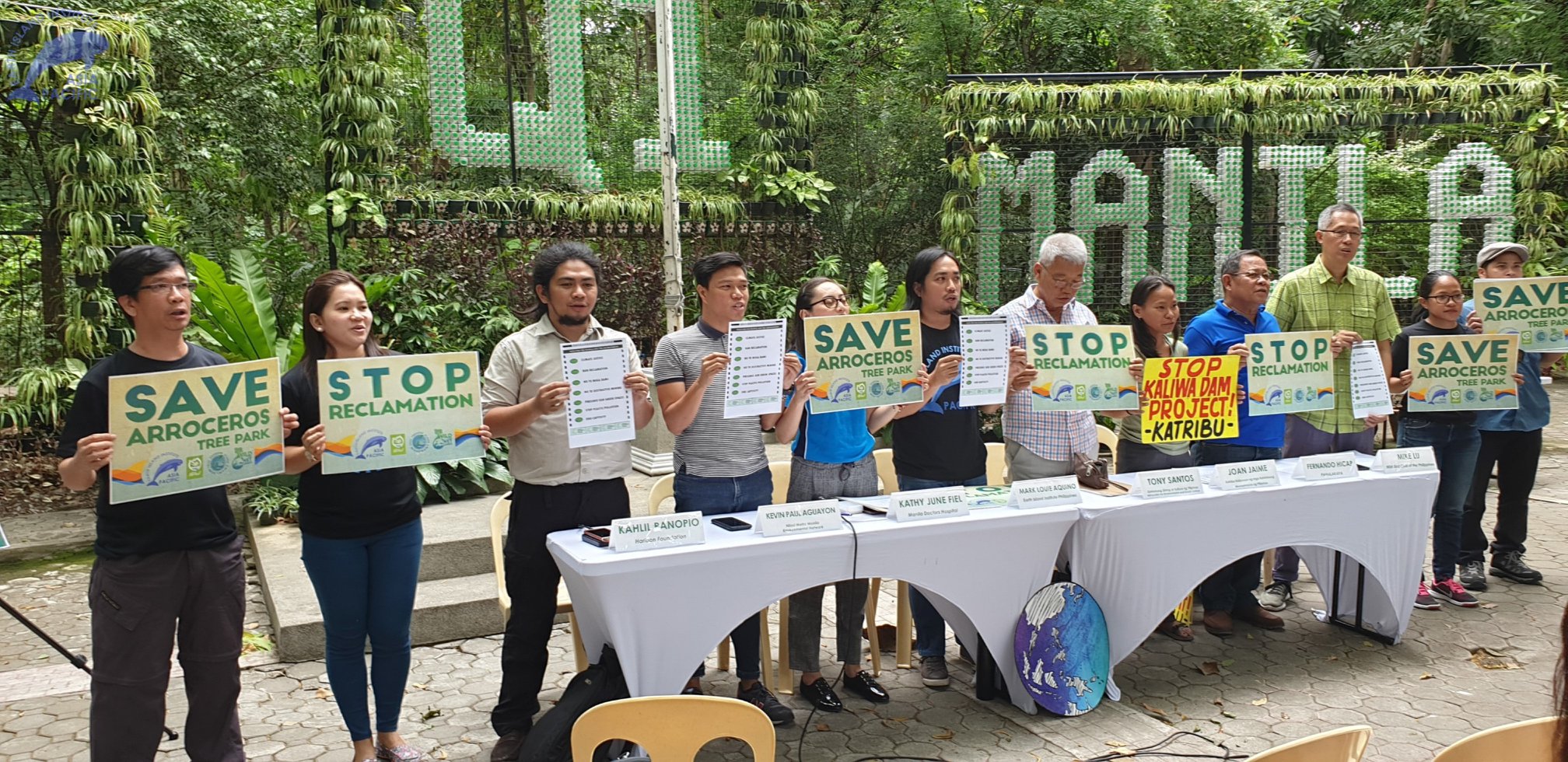
Source: Haribon Foundation Facebook
These are just a number of examples of the projects Infoxchange supported over the digital transformation program. From here, organisations have built the capability to introduce more advanced technologies, such as analytics or artificial intelligence initiatives.
The 2024 Asia-Pacific Digital Transformation Summit

Source: Infoxchange
In the first week of June at Google HQ in Singapore, we hosted the Asia-Pacific Digital Transformation Summit with support from Google.org and the Asian Development Bank. Over 60 not-for-profits delegates were flown from across the region to collaborate, share and be inspired.
The summit involved an incredible line-up of speakers gathering together to discuss the most critical topics in technology for impact.
We were joined by Scott Beaumont, President, Asia-Pacific, Google who spoke to harnessing technology for social impact in APAC region. Additionally, we saw Ms Hanyon Goh, Director of the National AI Group and Smart Nation Strategy Office, Ministry of Communications and Information lead a keynote on digital transformation in Singapore, and Dr Ming Tan, Founding Executive Director, Tech for Good Institute shared how to harness tech to be efficient, resilient and future ready.
We heard from expert panelists including Kate Brandt, Chief Sustainability Officer, Google, joined a panel with Naina Subberwal Batra, Chief Executive Officer, AVPN and Stephanie King-chung Hung, Director General of the Information Technology Department, Asian Development Bank to discuss how to leverage AI for the climate. And Jeanette Lai, Associate Program Director, COMO Foundation, Gaurav Mehta, Founder and CEO, Dharma Life also joined to discuss leveraging philanthropy, partnerships and digital tech on a panel moderated by Infoxchange’s own David Spriggs.
Delegates participated in workshops collaborating and sharing on their transformation journeys, sector challenges and opportunities for innovative tech, such as AI, to advance their impact. And explored how to weave impact stories around solutions to communicate or pitch to potential donors or investors.
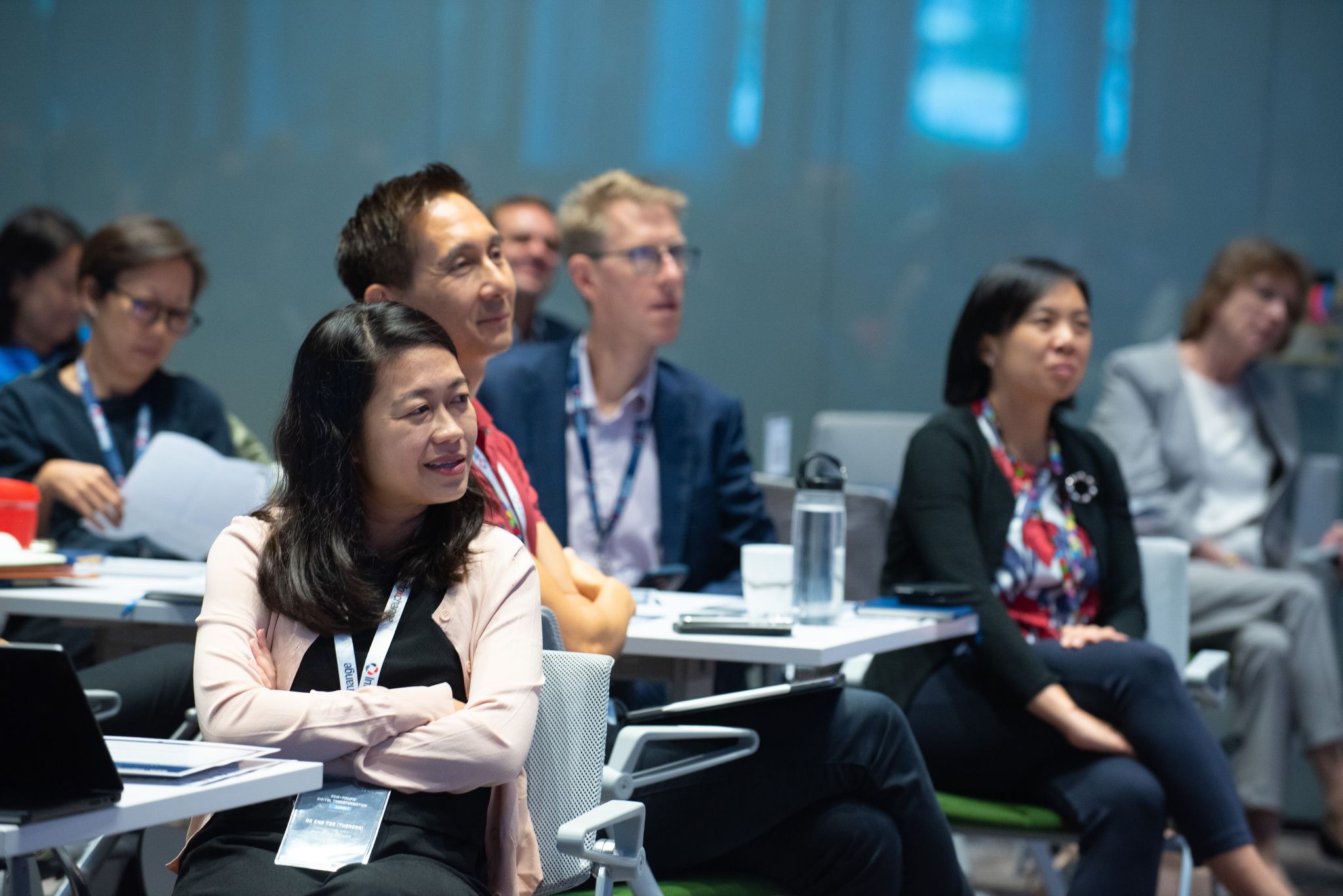
Source: Infoxchange
We saw many new relationships being formed and strengthened, with organisations learning about similarities in their missions, causes and technologies. Additionally, many funders in the room built their understanding as to why not-for-profits need technology funding to advance their impact, and when funding is available the impact NFPs can create for their communities.
At the Summit, Maggie Johnson, Global Head and Vice President at Google.org announced that Google.org, will provide an additional USD$1.5 million to support Infoxchange, enabling social and environmental-focused nonprofits across the Asia-Pacific region to upscale their impact. This second round of funding will further support organisations who benefited from the first iteration of the program. The funding will help these organisations harness AI and other innovative digital solutions to amplify their impact.
